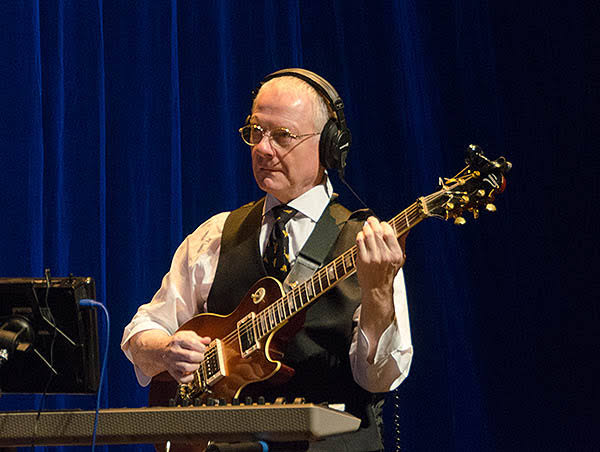Legendary Guitarist Robert Fripp Passes Away at 78
The world of music has lost one of its most innovative and influential musicians. Robert Fripp, the renowned guitarist, composer, and founding member of the groundbreaking progressive rock band King Crimson, has passed away at the age of 78. His death marks the end of an era for the world of experimental rock music, where his contributions have left an indelible mark on the genre.
Fripp’s passing, confirmed by his family on January 3, 2025, comes as a shock to fans and fellow musicians around the world. While details regarding the cause of death have not yet been released, tributes have been pouring in from all corners of the music industry, with many expressing their admiration and respect for the legacy Fripp leaves behind.
Born on May 16, 1947, in Wimborne, Dorset, England, Fripp developed a passion for music at a young age. He began playing guitar as a teenager, and by the late 1960s, he was deeply immersed in the London music scene. Fripp’s technical prowess and avant-garde approach to the guitar set him apart from his contemporaries, and his unique sound soon began to catch the attention of musicians and listeners alike.
In 1969, Fripp co-founded King Crimson, a band that would go on to become one of the most influential in rock history. The band’s debut album, In the Court of the Crimson King, released in 1969, revolutionized the progressive rock genre and established King Crimson as a cornerstone of musical experimentation. The album’s intricate compositions, unpredictable time signatures, and groundbreaking use of orchestral arrangements pushed the boundaries of what rock music could be. Fripp’s guitar work on the album was unlike anything heard before, combining jazz, classical, and avant-garde elements to create a sound that was both complex and accessible.
Over the decades, King Crimson would undergo numerous lineup changes, but Fripp remained the constant driving force behind the band. His ability to evolve musically and experiment with different sounds and textures kept King Crimson at the forefront of the progressive rock movement. Albums like Larks’ Tongues in Aspic (1973), Red (1974), and Discipline (1981) cemented Fripp’s reputation as one of the most innovative guitarists of his generation.
Fripp was not only known for his groundbreaking guitar playing but also for his approach to music as an intellectual and philosophical endeavor. Throughout his career, he was deeply concerned with the intersection of music and consciousness, believing that music had the potential to elevate and transform the human experience. His work with King Crimson often incorporated elements of both classical music and experimental sound design, with Fripp using his guitar as an instrument to explore new sonic landscapes.
Beyond King Crimson, Fripp’s influence can be felt across a wide range of musical genres. He collaborated with some of the most iconic musicians of the 20th century, including David Bowie, Brian Eno, Peter Gabriel, and Daryl Hall. His work with Bowie on Heroes (1977) and Scary Monsters (and Super Creeps) (1980) helped shape the sound of late 1970s and early 1980s rock music, with Fripp’s distinctive guitar work adding an experimental edge to Bowie’s ever-evolving musical persona. Similarly, his collaborations with Eno helped define the ambient music genre, with Fripp contributing atmospheric guitar textures to Eno’s pioneering albums No Pussyfooting (1973) and Evening Star (1975).
Fripp was also known for his innovative approach to guitar techniques and his development of the “Frippertronics” system. This method involved using looped recordings and delay effects to create complex layers of sound that could evolve and develop over time. Frippertronics became a hallmark of Fripp’s solo performances and his collaborations with Eno, offering audiences a mesmerizing, immersive listening experience. In addition to his technical mastery, Fripp’s philosophical and spiritual approach to music was evident in his teachings, as he frequently conducted guitar workshops and lectured on the deeper meaning of music.
As much as Fripp’s music defined his career, his personal philosophy and commitment to discipline were also central to his identity. He was known for his intense focus and work ethic, often spending hours each day practicing his craft and refining his technique. This dedication to excellence extended to his role as a mentor, with Fripp inspiring generations of musicians who sought to emulate his virtuosic guitar playing and philosophical approach to creativity.
In recent years, Fripp had become less active in the public eye, preferring a quieter life away from the spotlight. However, King Crimson’s influence continued to resonate, with the band’s various members—including Fripp—continuing to perform live shows and release new material. In 2019, Fripp reunited with King Crimson for a series of live performances, where fans were once again treated to the innovative sounds that had made him a legend.
Fripp’s passing has sent shockwaves through the global music community, with fans from all over the world expressing their gratitude for his contributions. Many musicians have shared heartfelt tributes to Fripp on social media, reflecting on how his work changed their lives and shaped their own musical journeys. Notable artists such as Adrian Belew, Trey Gunn, and Pat Mastelotto—longtime collaborators with Fripp—have praised him as a visionary who pushed the boundaries of music and inspired countless others.
Fripp’s impact on modern music is immeasurable. He was not only a virtuoso guitarist but also an artist who believed in the transformative power of music. His legacy will live on in the countless albums he recorded, the generations of musicians he mentored, and the countless listeners who found inspiration in his unique sound.
Robert Fripp is survived by his wife, Toyah Willcox, an accomplished singer and actress. Together, the couple became a beloved fixture in the world of rock, with Toyah often appearing alongside Fripp in musical collaborations, both live and online.
As the music world reflects on the loss of this towering figure, Fripp’s profound influence will continue to be felt for generations to come.


